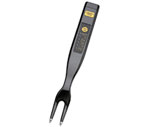-
Posts
8,082 -
Joined
-
Last visited
-
Days Won
556
Content Type
Profiles
Forums
Events
Blogs
Gallery
Articles
Media Demo
Store
Posts posted by MaryO
-
-
Androgen Replacement Therapy in Women with Hypopituitarism. This study is being conducted in:
- Boston, MA http://www.centerwatch.com/patient/studies/stu47295.html
This is a 12-month study investigating the effects of a natural hormone on bone formation, body composition, quality of life, cognitive function and libido. The study involves blood sampling, questionnaires and tests to determine bone density and the amount of fat and muscle in the body. Subjects will receive up to $600 for 6 outpatient visits after a screening visit determines eligibility.
Patient Inclusion/Exclusion Criteria:
Women ages 18-50 with adrenal insufficiency and/or estrogen deficiency from pituitary problems.
Contact:
Karen Miller MD
Massachusetts General Hospital
Fruit Street
Neuroendocrine
Boston, MA 02115
Telephone: 617-724-7388
Email: kkmiller@partners.org
-
I would think it's still ongoing, but I'm not sure. Lynn would know, though, since Sherri is her friend.
-
CafePress, where we get the T-Shirts and other stuff, is changing it's Terms of Service to something unacceptable to me on July 1. Among other things, they would own the use of our logos and images and we couldn't use them anywhere else without a possible lawsuit.
There are several other clauses that I don't like at all, so if they don't change their TOS by the end of this month, I'm going to close these stores down - theoretically, they can chage me $25 each to shut them down, too. Possibly $125 - more than the total profit that these brought in in the first place

Anyway, if you want any of this stuff, now's the time to get it. Cushing's Store
Sue found a nice site for buttons and such. Maybe we could get embroidered polos and denim shirts from there.
-
The transcript of this chat is available here: http://www.power-surge.com/transcripts/shipko7.htm
Others of his past chats are similarly named - http://www.power-surge.com/transcripts/shipko6.htm , http://www.power-surge.com/transcripts/shipko7.htm and so on.
-
Father's Day is June 15th! Find the perfect gift for Dad in our Father's Day Gift Collection! Plus, 2.8% of each Hickory Farms purchase via iGive.com is donated to Cushing's Help and Support!

Cheddy
Brats

Only $19.99 Plus Free Thermofork
6 (8 oz) Steak Burgers
3/4" thick

Only $22.95 Plus Free Thermofork
6 (4 oz) Pfaelzer's
Famous Filets

Only $49.95 Plus Free Thermofork
Free
Thermofork

*Free with select purchases
New! Thinking of You Dad

Only $24.99 New! Spice of Life

Only $39.99 Beef 'N Cheese

Only $29.99 Americana Basket

Only $16.99 -
Journal Scan is the clinician's guide to the latest clinical research findings in The Journal of Clinical Endocrinology & Metabolism, JAMA, and The New England Journal of Medicine, among others relating to diabetes, endocrinology, and metabolism. Short summaries of feature articles include links to the article abstracts and full text, when available. (Access to full text usually requires registration at the journal's Web site.)
--------------------------------------------------------------------------------
From
The Journal of Clinical Endocrinology and Metabolism
April 2003 (Volume 88, Number 4)
Gender-Related Differences in the Presentation and Course of Cushing's Disease
Giraldi FP, Moro M, Cavagnini F; the Study Group on the Hypothalamo-Pituitary-Adrenal Axis of the Italian Society of Endocrinology
by Ashok Balasubramanyam, MD, Kristin M. Richardson
The Journal of Clinical Endocrinology and Metabolism. 2003;88(4):1554-1558
Nearly three quarters of a century since the classic description of the syndrome resulting from a "basophilic adenoma of the pituitary body" by Harvey Cushing, the disease that bears his eponym still continues to fascinate endocrinologists. Progress in understanding its molecular etiology as well as the pathophysiology of its myriad complications has been rather slow, but one would have thought that not much remained to be described about its clinical manifestations. The road to making a diagnosis of Cushing's disease is notoriously rocky, but the journey must always begin with a strong clinical suspicion. Hence, it comes as a nice surprise as well as a welcome addition that Giraldi and colleagues have identified important gender-associated differences in the manifestations of the illness.
The investigators compared clinical features, biochemical parameters, and surgical outcomes in 280 patients with Cushing's disease (233 women, 47 men). They found that men tended to be diagnosed with the illness at a younger age (mean age: late twenties, early thirties, compared with late thirties in women), even though there was no gender difference in the duration of symptoms. Men generally had a more severe form of hypercortisolism, with significantly higher levels of plasma ACTH and urinary free cortisol. End-organ damage was similarly greater in men, who had a greater frequency of osteoporosis, muscle wasting, striae, and nephrolithiasis.
The remainder of the long list of clinical signs of Cushing's disease showed no gender differences, and there were no signs that were more common in women than in men. The analysis also brought out age-related differences in clinical manifestations. Striae were more common in younger patients of either gender, and muscle wasting was more common in younger men than in women and older men. Signs such as striae, muscle atrophy, hypokalemia, moon facies, and hypertension seemed to reflect a greater degree of hypercortisolism, as measured by urine or plasma cortisol levels.
Biochemical testing is the cornerstone of the diagnosis of Cushing's disease, and there were important gender differences here as well. The high-dose dexamethasone suppression test had a much lower diagnostic sensitivity in men (57% vs 82% for women), an important consideration because this test is frequently used to differentiate Cushing's disease from hypercortisolism due to an ectopic ACTH-producing tumor. Fortunately, other tests commonly used for the same purpose -- the ACTH and cortisol responses to CRH stimulation and the ACTH gradient during inferior petrosal sinus sampling -- were equally diagnostic in men and women. Finally, microadenomas were less frequently visualized by radiologic imaging in men.
This useful paper informs us that men tend to have earlier onset and a more severe form of Cushing's disease, and that some standard biochemical tests have significantly lower diagnostic accuracy in men. This may put men at a significant disadvantage with regard to identifying the proper cause of hypercortisolism, since men are more likely than women to have an ectopic ACTH-producing tumor. Hence, the more severe manifestations of Cushing's disease in men, together with the lower diagnostic accuracy of the high-dose dexamethasone test and pituitary imaging, make it even harder to differentiate it from the ectopic ACTH-producing tumor. This is an important cautionary tale to be added to the lore of clinical Cushingology.
? Ashok Balasubramanyam, MD
Gender-related differences in the presentation and course of Cushing's disease.J Clin Endocrinol Metab 2003 Apr;88(4):1554-8 (ISSN: 0021-972X)Giraldi FP; Moro M; Cavagnini FUniversity of Milan, Ospedale San Luca, Istituto Auxologico Italiano, Italy; Collective Name: Study Group on the Hypothalamo-Pituitary-Adrenal Axis of the Italian Society of Endocrinology.
Cushing's disease (CD) presents a marked female preponderance, but whether this skewed gender distribution has any relevance to the presentation and outcome of CD is not known. The aim of the present study was the comparison of clinical features, biochemical indices of hypercortisolism, and surgical outcome among male and female patients with CD. The study population comprised 280 patients with CD (233 females, 47 males) collected by the Italian multicentre study. Epidemiological data, frequency of clinical signs and symptoms, urinary free cortisol (UFC), plasma ACTH and cortisol levels, responses to dynamic testing, and surgical outcome were compared in female and male patients. Male patients with CD presented at a younger age, compared with females (30.5 +/- 1.93 vs. 37.1 +/- 0.86 yr, PMajor Subject Heading(s) Minor Subject Heading(s) CAS Registry / EC Numbers [*]Cushing Syndrome [diagnosis] [physiopathology]
[*]Sex Characteristics
[*]Adenoma [diagnosis] [surgery]
[*]Adult
[*]Age Factors
[*]Aging
[*]Corticotropin-Releasing Hormone [diagnostic use]
[*]Corticotropin [blood]
[*]Cushing Syndrome [epidemiology]
[*]Dexamethasone [administration & dosage] [diagnostic use]
[*]Glucocorticoids, Synthetic [administration & dosage] [diagnostic use]
[*]Hydrocortisone [blood] [urine]
[*]Italy [epidemiology]
[*]Pituitary Neoplasms [diagnosis] [surgery]
[*]Prognosis
[*]0 (Glucocorticoids, Synthetic)
[*]50-02-2 (Dexamethasone)
[*]50-23-7 (Hydrocortisone)
[*]9002-60-2 (Corticotropin)
[*]9015-71-8 (Corticotropin-Releasing Hormone)
Indexing Check Tags: Comparative Study; Female; Human; MaleLanguage: EnglishMEDLINE Indexing Date: 200305Publication Type: Owner: NLM; Status: CompletedPublication Type: Journal ArticlePreMedline Identifier: 0012679438Unique NLM Identifier: 22566140Journal Code: AIM; IM -
Power Surge also has an Ask the Expert feature which has archives.
Power Surge Ask the Experts Page includes Medical Doctor (Phillip O. Warner, M.D.), Revival Soy Doctor (Dr Aaron Tabor), The Pharmacist (Pete Hueseman, R.Ph., P.D.), The Women's Midlife Therapist (Stephanie Marston), The Anxiety-Panic Expert (Bronwyn Fox), The Relationship Expert (Steven Carter), The Intimacy Expert (Dr. Sandy Scantling), The Weight Watchers Expert (Denise Lamothe)
It's so nice to have all these medical people offer their time and talents at no charge - for a change!
-
Thanks, Victoria!
Where did this article come from?
I especially love this quote:
The typical patient with Cushing's Disease has seen five or six doctors with kind of vague symptoms of weight gain and feeling not themselves with sometimes some psychological depression and the diagnosis is missed because the doctors don't think about it," says Edward R. Laws, Jr., MD, FACS Prof., and Medicine & Neurological Surgery at the University of Virginia Health System.How true it is!
-
Power Surge Live!Invites You Join UsIn A Discussion About
- Panic, Anxiety, Stress-Related Disorders
How Common They Are During Menopause.The Pros And Cons of Anti-depressants and Anti-anxiety MedicationsPaxil, Xanax, Zoloft, Effexor, Prozac,Celexa, Serzone and More!color>THURSDAY, MAY 29th9 PM (ET), 6 PM (PT)Withcolor> is a Psychiatrist and Neurologist and one of the nation's leading experts on the adverse effects of psychiatric drugs. He tells the real story behind the widespread overuse of psychiatric medication and the negative consequences that have followed. Dr. Shipko has treated over 2500 patients with panic disorder and anxiety. As the Founder and Medical Director of PDI -the Panic Disorder Institute- Dr. Shipko is in private practice in Pasadena, California, and his specialty is in the area of panic disorder and stress-related medical conditions, stress and trauma-related disorders, psychiatric injury, psychosomatic medicine, general psychiatry. An outspoken expert in the area of psychopharmacology, Dr. Shipko will discuss the pros and cons of anti-depressants/SSRI's and anti-anxiety medications, such as Paxil, Zoloft, Luvox, Prozac, Celexa, Xanax, Serzone, Buspar.Read a previous transcript here.Meet DR. STUART SHIPKOThursday,May 29that 9 PM (ET), 6 PM (PT)color>Enter The Power Surge Guest Chat(It's where we have the Wed Cushing's Chats)Sign up to receive weekly announcementsof special guest chats and scheduled events,plus a monthly newsletteron menopause and women's health issuesand other information of interest to women at midlife.Remember, you can find the guesttranscripts of chats you've missed in the3-4 days after the chat.
is a Psychiatrist and Neurologist and one of the nation's leading experts on the adverse effects of psychiatric drugs. He tells the real story behind the widespread overuse of psychiatric medication and the negative consequences that have followed. Dr. Shipko has treated over 2500 patients with panic disorder and anxiety. As the Founder and Medical Director of PDI -the Panic Disorder Institute- Dr. Shipko is in private practice in Pasadena, California, and his specialty is in the area of panic disorder and stress-related medical conditions, stress and trauma-related disorders, psychiatric injury, psychosomatic medicine, general psychiatry. An outspoken expert in the area of psychopharmacology, Dr. Shipko will discuss the pros and cons of anti-depressants/SSRI's and anti-anxiety medications, such as Paxil, Zoloft, Luvox, Prozac, Celexa, Xanax, Serzone, Buspar.Read a previous transcript here.Meet DR. STUART SHIPKOThursday,May 29that 9 PM (ET), 6 PM (PT)color>Enter The Power Surge Guest Chat(It's where we have the Wed Cushing's Chats)Sign up to receive weekly announcementsof special guest chats and scheduled events,plus a monthly newsletteron menopause and women's health issuesand other information of interest to women at midlife.Remember, you can find the guesttranscripts of chats you've missed in the3-4 days after the chat. -
Are these Tumors Connected?
BOSTON, May 19 /PRNewswire/ -- Jenny has a vascular brain tumor called a hemangioma. Uncle Ken has kidney cancer. Aunt Margaret is blind. Cousin Jim has an adrenal tumor called a pheochromocytoma. What do all these tumors have in common? They are in the same family of people, and in fact they are in the same family of disease -- they are all caused by a flaw in one gene, the VHL gene.
May is National VHL Awareness Month. The VHL Family Alliance is the only national organization dedicated to improving the lot of people with von Hippel-Lindau (VHL). This year marks the Tenth Anniversary of this strong volunteer organization, working to cure cancer.
VHL is a hereditary cancer predisposition syndrome -- like hereditary breast and colon cancer, VHL can lead to kidney or pancreatic cancer. With early diagnosis, and appropriate treatment, however, people today have a very good chance of avoiding the worst consequences of cancer. Research on the VHL gene has proven to be key to understanding how cancer works for everyone.
"The Good Lord left us some clues," says Joyce Graff, Chairman of the Alliance. "By studying some of the rare diseases over the last ten years, we have learned a great deal about how cancers begin and grow." For example, changes in the VHL gene are responsible for 85% of kidney cancer in the general population.
We are just now on the brink of an era where new drugs can intervene and slow or reverse the growth of cancer tumors in a number of conditions, including kidney cancer. For families with VHL, this news provides a glimmer of hope that perhaps by the year 2010 there will be a medication to stop, or at least slow down, the growth of new tumors. Families and medical professionals have joined forces in the VHL Family Alliance to share information with one another, provide morale support and work toward furthering our understanding of VHL and all other kinds of cancer.
VHL may allow tumors to form in the retina, brain, spinal cord, kidney, pancreas, or adrenal glands. People who have tumors in their family, especially hemangiomas, in two or more of these areas should ask their physicians about VHL. For more information about VHL, please contact the VHL Family Alliance, 1-800-767-4VHL, or info@vhl.org.
For further information about von Hippel-Lindau disease:
Connect to the VHLFA Home Page at URL http://www.vhl.org
Broadcast-quality video interviews available on request from:
Cary J. Schwanitz, News Desk
KOAT-TV, Albuquerque, NM
505-884-6324
Online press kit:
SOURCE The VHL Family Alliance
CO: The VHL Family Alliance
ST: Massachusetts
SU: SVY
05/19/2003 05:20 EDT
-
Here is a special coupon offer for you! With this coupon, you can save $5 when you spend $40 or more.
Coupon offer expires May 31, 2003.
Coupon code: DADGRADS
-
Welcome to the Cushing's Store! This is the place to buy products which help promote Cushing's awareness. They're great to wear to the Convention or local meetings. Your purchase will also help provide support for the Cushing's Help Website, Message Boards and the CUSH Organization
Any item can be personalized with your name or other information. Please email me at CushingsSupport@aol.com for more information and pricing.
Many new and exciting products will be coming soon!
Apparel Back to Top 
$18.99

$18.99

$18.99

$18.99

$15.99

$15.99

$15.99

$15.99

$16.99

$16.99

$16.99

$16.99

$18.99

$18.99

$18.99

$18.99

$20.99

$20.99

$20.99

$20.99

$18.99

$18.99

$18.99

$18.99

$22.99

$22.99

Cushing's Support Staff Sweatshirt
$22.99

$22.99
Housewares Back to Top 
$13.99

$13.99

$16.99

$13.99

$13.99

$12.99

$12.99

$15.99

$12.99

$12.99

Cushie Coffee Stainless Steel Travel Mug
$17.99

Personalized Stainless Steel Travel Mug
$19.99
Hats Back to Top 
Cushing's Know-It-All Baseball Cap
$14.99
Bags Back to Top 
$15.99
Thanks for Supporting Cushing's Awareness!
-
From Medscape: http://www.medscape.com/viewarticle/453151
Spironolactone Cost-Effective in Idiopathic Hirsutism CME
News Author: Laurie Barclay, MD
CME Author: Bernard M. Sklar, MD, MS
April 28, 2003 ? Cyproterone acetate, finasteride, and spironolactone are equally effective in the short-term control of idiopathic hirsutism, according to the results of a prospective, randomized clinical trial published in the April issue of Fertility & Sterility. But spironolactone was effective longer, and the investigators suggest that this treatment was also cost-effective.
"Spironolactone is a competitive inhibitor of aldosterone that competes with dihydrotestosterone in target tissues and has antiandrogenic properties," write Francho Lumachi, MD, and Riccardo Rondinone, MD, from the University of Padua in Italy.
Forty-one women with idiopathic hirsutism who had requested use of an oral contraceptive were randomized to 12 months of treatment with cyproterone acetate, 12.5 mg/day for the first 10 days of the cycle; finasteride, 5 mg/day; or spironolactone, 100 mg/day.
At completion of treatment, the Ferriman-Gallwey score decreased by about 39% in all three groups. One year after treatment, the Ferriman-Gallwey score in the spironolactone group was 6.74 ? 1.41, significantly lower than in the cyproterone acetate group (7.92 ? 1.08) or the finasteride group (9.08 ? 0.99). The androgenic profile did not change significantly during treatment.
"Spironolactone is especially useful for women in whom an oral contraceptive alone is ineffective," the authors write. "The combination of spironolactone (100 mg/day) and a monophasic oral contraceptive was effective for a longer time than was treatment with the other two drugs and was cost-effective."
Fertil Steril. 2003;79:942-946
Clinical Context
Many women seek treatment for unwanted hair growth. These women initially should be evaluated for endocrine abnormalities and these abnormalities should be treated when found. About 80% will be found to have treatable abnormalities. The other 20% will be found to have idiopathic hirsutism.
Hirsute women with both normal ovarian function (history of regular and ovulatory menstrual cycles), and normal circulating androgen levels are considered to have idiopathic hirsutism. Hirsutism affects 5% to 10% of women, depending on their ethnic group. Many of these women will request treatment for idiopathic hirsutism.
A commonly used method to grade hair growth is the modified scale of Ferriman and Gallwey, in which each of nine androgen-sensitive sites is graded from 0 to 4. These areas are the upper lip, chin, chest, abdomen, pubic area, legs, back and buttocks.
According to Danforth's Obstetrics and Gynecology, there is no drug currently approved by the U.S. Food and Drug Administration for the treatment of hirsutism. In milder forms of hirsutism in women not satisfied cosmetically with mechanical removal, an oral contraceptive pill may be the best first-line drug. Spironolactone and cyproterone have previously been shown to be equivalent in effectiveness. Cyproterone is not available in the U.S. In more severe forms of hirsutism, a GnRH agonist (Buserellin) plus an oral contraceptive may be chosen over flutamide or ketoconazole, particularly when hepatic problems are a concern. Finasteride appears to have the fewest adverse effects of all and may be very effective in treating women with a low or no risk of pregnancy.
Study Highlights
- 41 young women (median age, 21 years [range, 18-34 years]) with idiopathic hirsutism who had requested prescription for an oral contraceptive.
- Inclusion criteria were a modified Ferriman-Gallwey score of 6 or greater, regular menstrual cycles of 21 to 35 days; progesterone levels greater than 13 nmol/L in the luteal phase; normal circulating serum levels of free T, DHEAS, androstenedione and 17-hydroxyprogesterone. The mean Ferriman-Gallwey score at the beginning of treatment was about 11 to 12.
- No patient had any other disease or had received oral contraceptives or antiandrogenic drugs in the previous two years. Patients with abnormal results on routine laboratory tests were excluded.
- Patients were randomized to 12 months of treatment with cyproterone acetate, 12.5 mg/day for the first 10 days of the cycle; finasteride, 5 mg/day; or spironolactone, 100 mg/day. All patients also received an oral contraceptive during the two-year study.
- After one year, the Ferriman-Gallwey score decreased by about 39% in all three groups. One year after treatment ended (two years from the start of the study), the Ferriman- Gallwey score in the spironolactone group was 6.74 ? 1.41, significantly lower than in the cyproterone acetate group (7.92 ? 1.08) or the finasteride group (9.08 ? 0.99). The androgenic profile did not change significantly during treatment.
- The authors conclude, "Spironolactone is especially useful for women [with idiopathic hirsutism] in whom an oral contraceptive alone is ineffective. The combination of spironolactone (100 mg/day) and a monophasic oral contraceptive was effective for a longer time than was treatment with the other two drugs and was cost-effective."
Pearls for Practice
- Cyproterone acetate, finasteride, and spironolactone, given along with an oral contraceptive, were equally effective in reducing unwanted body hair during the period of administration of the study drug (one year).
- The effect of spironolactone was more persistent (one year after treatment ended) than was cyproterone acetate or finasteride.
About News CME
News CME is designed to keep physicians abreast of current research and related clinical developments that are likely to affect practice, as reported by the Medscape Medical News group. Medscape Medical News Coordinator is Deborah Flapan. Clinical review is provided by Gary Vogin, MD. News CME is managed by Elliott Silverman. Send comments or questions about this program to cmenews@webmd.net.
Medscape Medical News 2003. ? 2003 Medscape
Legal Disclaimer
The material presented here does not reflect the views of Medscape or the companies providing unrestricted educational grants. These materials may discuss uses and dosages for therapeutic products that have not been approved by the United States Food and Drug Administration. A qualified health care professional should be consulted before using any therapeutic product discussed. All readers and continuing education participants should verify all information and data before treating patients or employing any therapies described in this continuing medical education activity.
- 41 young women (median age, 21 years [range, 18-34 years]) with idiopathic hirsutism who had requested prescription for an oral contraceptive.
-
Recent Amazon Purchases: what happens?
Beginning April 16, 2003, Amazon will no longer be available on iGive.com, so it will not be possible to place new orders which qualify for donations. Also, orders shipped after April 23, 2003 do not qualify for iGive credit, even if they were placed prior to April 16, 2003. If you have not already done so, please report all your existing Amazon.com orders through the Transaction Reporting Form: http://www.iGive.com/html/missingtrans.cfm
The deadline to report Amazon orders placed through iGive.com is June 23, 2003.
Contacting Amazon.com
Several members have written to us requesting contact information for Amazon.com. Many of you wish to voice your displeasure at Amazon's recent decision to leave iGive.com. To that end, here are a few ways to contact Amazon.com, if you so desire:
E-mail Amazon's Associates Program: associates@amazon.com
Contact Amazon's Customer Service: http://www.amazon.com/help
Mail a letter to Jeff Bezos:
Mr. Jeff Bezos
Chairman and CEO
Amazon.com, Inc.
1200 12th Ave., Ste. 1200
Seattle, WA 98144
-
Here are the eBay rules:
$.03 donation/visit when you bid. $.02 for Buy-It-Now. New to eBay? Join via iGive & get $3! (place bid within 30 dys) Earnings from bidding/joining don't count as shopping & aren't tax-deductible.
-
**sigh** Still would like to set up the donations address if we could iron out all difficulties.
What donations address?
-
Here's more on the iGive shopping wondow. I tried it out by buying a bathing suit at Land's End LOL
With the iGive.com Shopping Window, you're ensuring that up to 26% (and sometimes more) of every purchase you make through a store in the
iGive.com Mall helps Cushing's Help and Support!
HERE'S HOW YOUR iGIVE.COM SHOPPING WINDOW HELPS YOUR FAVORITE CAUSE:
++ Just shop as you normally do-- by going directly to your favorite store's Web site. For example: Type http://www.LandsEnd.com in your Web browser.
(The Shopping Window will *not* be activated if you click a link in an e-mail, or if the last site you visited is iGive.com.)
++ If the store you visit is part of iGive's Mall of 410+ stores, your Shopping Window will appear to make sure your purchase counts for a donation! No need to
remember which stores are part of iGive.com!
++ If you see the iGive.com Shopping Window, up to 26% of your purchase at that store is automatically donated to your designated cause!
Remember, if you don't see the iGive.com Shopping Window when you visit an online store, it's not one of the 410+ stores in the iGive.com Mall that help your cause with every purchase. If you don't see the Shopping Window, the purchase doesn't count for a donation.
Start Shopping! For a complete A-Z list of all 410+ stores in the iGive.com Network, just visit: http://www.iGive.com/html/merchantlist.cfm
A FEW HANDY LINKS TO HELP YOU GET STARTED
++ Check out the current Specials Coupons & Offers at the Mall! http://www.iGive.com/html/specials.cfm
++ Get FREE SHIPPING at some of your favorite stores! Visit: http://www.iGive.com/html/FreeShipping.cfm
++ Read iGive.com's weekly Newsletter, filled with new coupons, free shipping, Double Donation Days, & more!
Read the newest issue online at: http://www.iGive.com/html/iGiveNews.cfm
Happy shopping, and best wishes to you and your worthy cause!
Robert Grosshandler
CEO/Founder, iGive.com
-
Ebay does? I didn't know that. I'm bidding on something right now and it looks like I'm winning. I had the shopping window on my last computer, but I thought that I knew it all.
Thanks, Sue. I'll get the shopping window again before that auction is over.
-
Just a reminder

-
Dr. F. emailed me and asked me if I could post this study for him. He's looking for female patients with hypopitutiarism for his current study on testosterone replacment.
WOMEN WITH PITUITARY PROBLEMS WANTED FOR A TESTOSTERONE STUDY
Purpose: Testosterone is the principal male sex hormone but is also present in smaller amounts and may be important in women. Among its likely actions in women are the building of bone and muscle mass, increase in interest in sex (libido) and effects on the mood. The role of testosterone replacement in women with low testosterone levels is currently being studied. In this study, you will be given an experimental preparation of a testosterone gel which will be applied on the skin of your outer thigh for up to 2 months. It is anticipated that this experimental gel application will produce levels of the drug in the normal range for women. A further aim of this study is to assess whether female patients with dysfunction of the pituitary gland have abnormalities in body composition, muscle strength and thinking and sexual function.
Criteria for subjects:
- Women ages 18 to 50.
- Hypopituitarism with documented central adrenal and gonadal deficiencies, on conjugated equine estrogen replacement
- Serum testosterone level of
- written informed consent
- No other significant medical condition
- Patients must discontinue their current testosterone replacement
Number of patients-15
Location: King/Drew Medical Center in Willowbrook and UCLA in West Los Angeles
Enrollment Period: Winter-Spring 2003
Patient Compensation: $500
For more information or subject referrals contact:
Ted F., M.D., Ph.D. Clinical DirectorTelephone (323) 563-9353Email:Fax: (323) 563-9352Charles R. Drew University of Medicine and Sciences1731 E. 120th St.Los Angeles, California 90059 - Women ages 18 to 50.
-
From NIH Current Clinical Trials listings:
-
iGive.com allows online stores to donate a percentage of their profit to running these Cushing's Support sites (the message boards, http://www.cushings-help.com, http://www.CUSH.org, http://www.cushings-support.com and http://www.cushingsonline.com) at no cost to you. So far, members have raised $226.28, and it hasn't cost them a cent.
Extended Deadline! Extra! Extra! Read all about it. $5 Free Donation.
Through May 31, 2003, (extended deadline) each new member who registers at iGive and shops will earn an additional $5 for these Cushing's Support sites. That's on top of the standard of up to 26% from your shopping. Only hitch - you've got to shop within 45 days of joining.
With over 435 stores now at iGive.com, you've got some great choices.
-
FDA Approves Treatment for Growth Disease
By LAURAN NEERGAARD
.c The Associated Press
WASHINGTON (AP) - Sufferers of a rare disease that causes out-of-control growth are about to get a novel treatment that targets one of the condition's key villains.
The Food and Drug Administration approved Somavert on Wednesday as a treatment for acromegaly. The injected drug blocks the effects of excess growth hormone.
An estimated 40,000 people worldwide have acromegaly, which can make them abnormally tall, cause bone deformities and swell their facial features, hands and feet. Severe joint pain is common, and patients are at high risk of death from heart disease, diabetes and cancer spurred by the condition's excess hormones.
The disease killed the wrestler and actor Andre the Giant, best known for playing Fezzik in the 1986 movie, "The Princess Bride". He died in 1993, aged 46.
Acromegaly occurs when a non-cancerous tumor on the pituitary gland causes secretion of excessive growth hormone, which in turn causes dangerous overproduction of a second hormone called IGF-1.
Removing the pituitary tumor is the first step. But often growth hormone levels don't return to normal for years, so patients also need radiation or drug therapy to suppress growth hormone - but some aren't helped.
Pharmacia Corp.'s Somavert doesn't suppress growth hormone but prevents its bad action, by blocking special cell receptors needed to trigger excess IGF-1, explained FDA's Dr. David Orloff.
More than 90 percent of patients who had failed other treatments saw their IGF-1 levels return to normal with daily Somavert injections, he said.
Normalizing IGF-1 is expected to lessen, if not prevent, acromegaly's worst symptoms. Orloff called Somavert an "extremely promising" treatment.
Pharmacia Corp. refused to reveal how much it will charge for Somavert, even though sales are set to begin next month. But treatments for rare diseases can cost tens of thousands of dollars a year.
Side effects include injection-site irritation, sweating, headache and fatigue.
Patients also must undergo regular liver testing during the first six months of Somavert use, the FDA warned. During studies, two patients experienced very high levels of liver enzymes that signal organ damage.
Somavert, known chemically as pegvisomant, is the first drug to target growth-hormone receptors, and scientists are beginning to study whether that specialized action might help other ailments, too, such as diabetes-caused blindness and nerve damage.
03/26/03 15:10 EST
Copyright 2003 The Associated Press. The information contained in the AP news report may not be published, broadcast, rewritten or otherwise distributed without the prior written authority of The Associated Press. All active hyperlinks have been inserted by AOL.
-
Smallpox Risk, Vaccinated Doctors Studied
By LINDSEY TANNER
.c The Associated Press
CHICAGO (AP) - More than half of all New York state hospital patients may face an increased risk of complications from contact with smallpox-vaccinated health care workers, a study suggests.
With the voluntary vaccination of health care workers under way nationwide, the study's results underscore the need for strict adherence to safety guidelines, the researchers said.
The federal Centers of Disease Control and Prevention recommends daily inspection and bandaging of the vaccine site, meticulous hand-washing after contact and administrative leave if vaccination-related complications develop.
``Successful implementation of this policy will require the complete cooperation of every vaccinated health-care worker to avoid complications among vulnerable hospital patients,'' said the study by Dr. Perry Smith and Hwa-Gan Chang of New York's health department and Dr. Kent Sepkowitz of Memorial Sloan-Kettering Cancer Center in New York.
The study appears in Wednesday's Journal of the American Medical Association.
The smallpox vaccine is made with a live virus called vaccinia that can infect those who come into contact with people who have been vaccinated. Such infections are called contact vaccinia.
The CDC says no doctor-to-patient cases have been reported in the voluntary program in which more than 21,000 health care workers have been vaccinated since January.
The researchers examined data on 2.4 million patients discharged from New York hospitals in 2001; about 1.3 million of them had conditions that may put them at increased risk for contact vaccinia.
Those at increased risk include: newborns; patients with immune system diseases; those with skin conditions including eczema; and cancer patients and others on immune-suppressing medication.
The CDC has estimated that between 15 percent and 18 percent of the general population has an at-risk condition. The percentage among hospitalized patients naturally would be higher.
CDC immunization specialist Dr. Walter Orenstein said the risk of doctor-to-patient transmission is very small if precautions are taken.
On the Net:
JAMA: http://jama.ama-assn.org
CDC: http://www.cdc.gov
03/25/03 16:33 EST
Copyright 2003 The Associated Press. The information contained in the AP news report may not be published, broadcast, rewritten or otherwise distributed without the prior written authority of The Associated Press. All active hyperlinks have been inserted by AOL.



New Asthma Treatment Gets FDA Approval
in News Items and Research
Posted
New Asthma Treatment Gets FDA Approval
By LAURAN NEERGAARD
.c The Associated Press
WASHINGTON (AP) - Millions of asthma sufferers are about to get a dramatically different treatment that promises to short-circuit some attacks: a drug named Xolair that won Food and Drug Administration approval late Friday.
It's only for patients with serious allergic asthma, where the breathing problems are triggered by allergies - and then only if regular asthma medicines aren't working. And it's expensive, requiring monthly shots that will cost between $5,000 and $10,000 a year, depending on the dose.
But doctors have been anxiously awaiting Xolair because it works differently than any other asthma medicine, blocking an allergic reaction well before it triggers the hallmark gasping for air.
That same reaction is behind a range of allergic ailments, from hay fever to peanut allergy, that scientists hope Xolair one day will prove key to treating, too.
"This is radically new, it's not another antihistamine or another inhaler," said Dr. Bob Lanier of the University of North Texas Health Science Center, who led research on the drug for its three developers: Genentech Inc., Tanox Inc. and Novartis Pharmaceuticals.
"It's the first of a new breed of bioengineered drugs that get to the root of the disease rather than just the symptoms," he said.
In one study, Xolair cut by one-third to one-half the number of asthma attacks suffered by patients whose disease isn't controlled by today's standard treatments. Many dramatically cut back or even eliminated inhaled steroids and other asthma medications.
But the FDA said its scrutiny of all studies of Xolair suggests it will help only about 15 percent of patients avoid an asthma attack.
A week after the first shot, "I was able to do something I'd never done in my life: Play with a dog," said Joe Wagner, 44, of Stockholm, N.J., a study participant. "It was like somebody turned a switch off."
The drug is generally safe, the FDA said. But three patients did suffer a life-threatening allergic reaction to the medicine itself. Also, there appeared to be a very small increase in the number of Xolair-treated patients who had various forms of cancer - half a percent compared with 0.2 percent of people given dummy injections. The FDA has asked the manufacturers to continue studying whether cancer is a real risk.
Some 17 million Americans have asthma, a chronic respiratory disease that causes recurring episodes of breathlessness, wheezing, chest tightness and coughing. Many patients require daily medication to control symptoms and prevent attacks. Every year, asthma kills 5,000 people and is responsible for nearly 2 million emergency room visits.
Allergic asthma is the most common form, affecting an estimated 7 million adults and 3 million children. Xolair is for those 12 and older with moderate to severe disease that isn't well-controlled by standard therapy.
Xolair will be available by prescription in late July, with a wholesale cost of $433 per injectible vial, according to Novartis. In studies, 60 percent of patients required one vial a month and the rest two; the dose is determined by patient size and degree of allergic reaction.
It's not clear how quickly insurance companies will cover Xolair, but despite its high cost the drug could actually save money for many patients, Lanier said. Add the numerous inhalers and pills that many patients require daily, plus emergency-room and doctor visits for asthma attacks, and the most severe patients today spend up to $25,000 a year.
When people with allergic asthma breathe in allergens - pollen, dust, mold or animal dander - they produce large amounts of an antibody called IgE, or immunoglobulin E.
Antibodies are immune-system cells crucial to attacking disease-causing microbes. But in people with allergies, IgE is essentially an antibody gone wrong, mounting a full-scale immune attack against normal environmental substances. The IgE attaches to cells lining the respiratory tract, causing them in turn to release chemicals such as histamine and leukotrines that cause inflammation - important if you were fighting an infection but breath-stealing when it happens in an asthma patient's airways.
Xolair is a manmade antibody that seeks out IgE in the blood and binds to it so there is less available to damage airways, interrupting the allergic reaction earlier than other asthma medicines that generally target just the inflammation steps.
06/20/03 18:45 EDT
Copyright 2003 The Associated Press. The information contained in the AP news report may not be published, broadcast, rewritten or otherwise distributed without the prior written authority of The Associated Press. All active hyperlinks have been inserted by AOL.